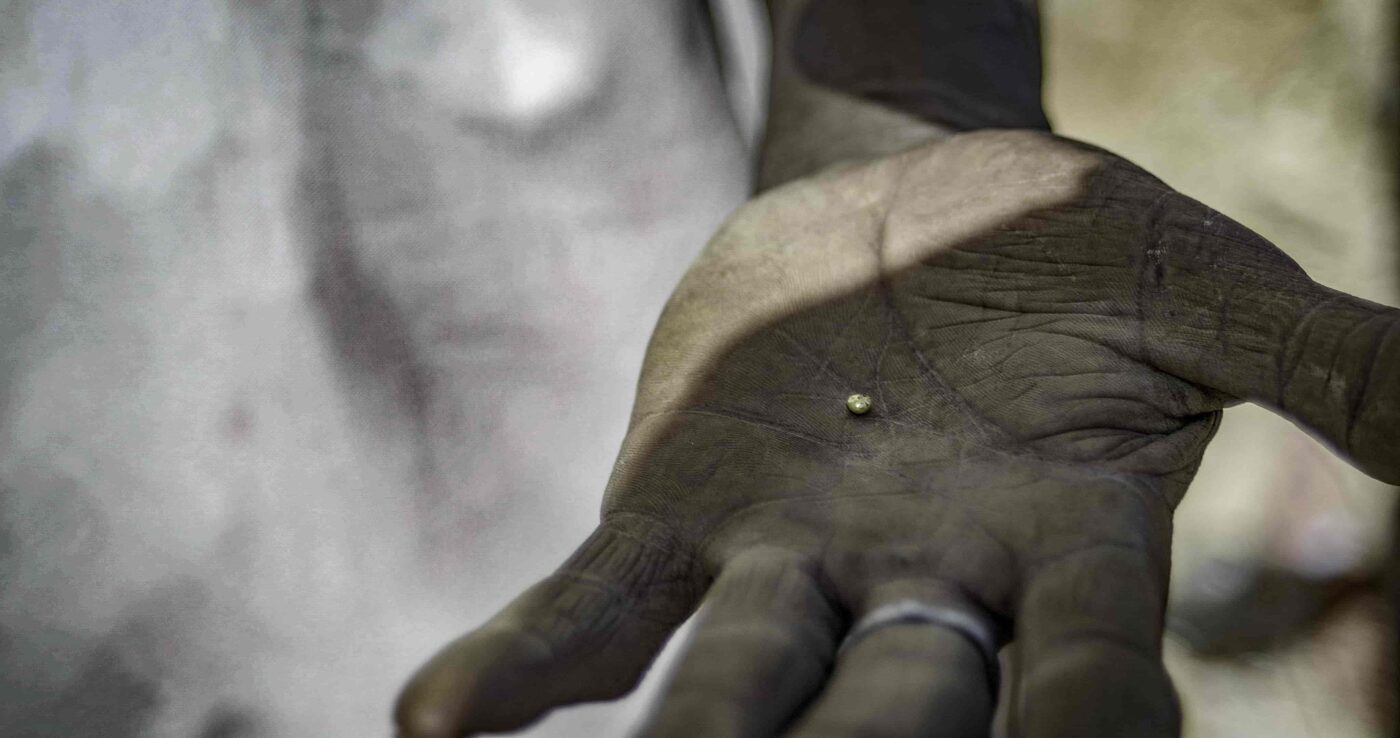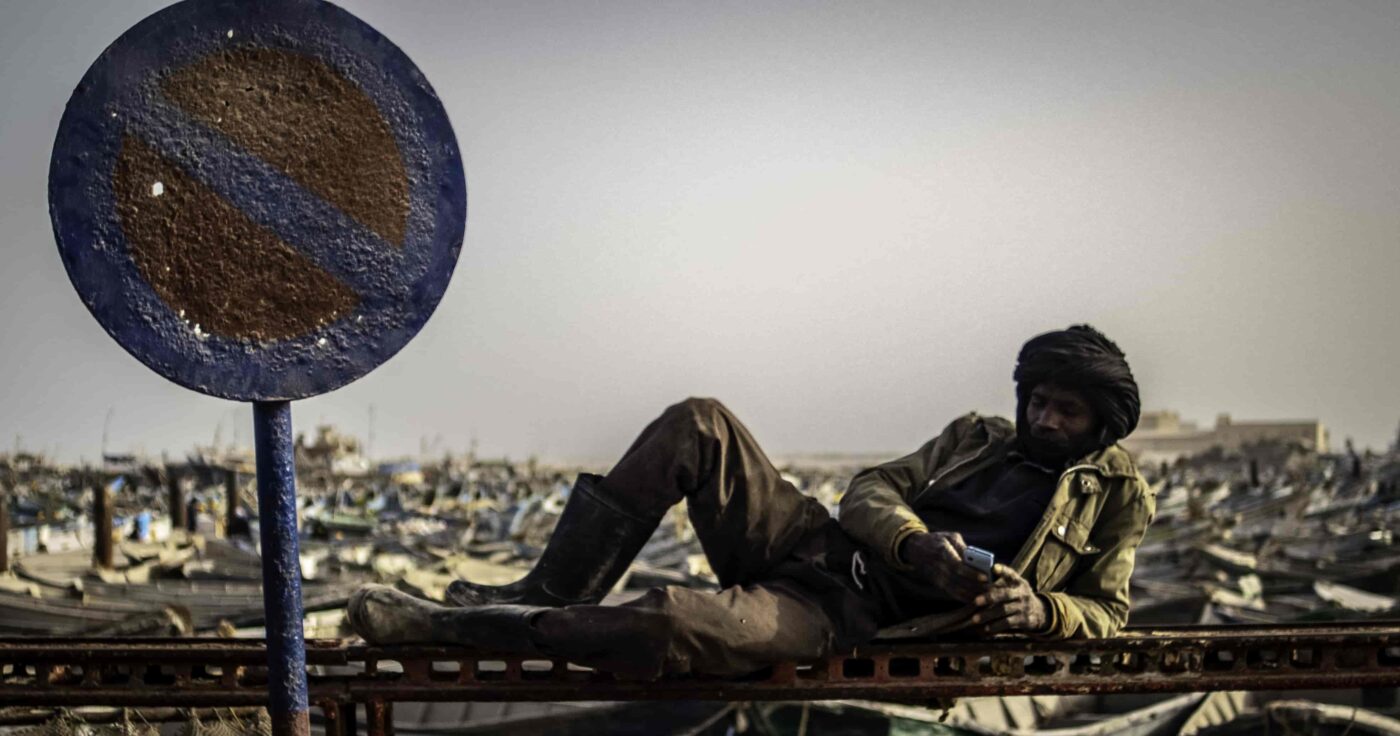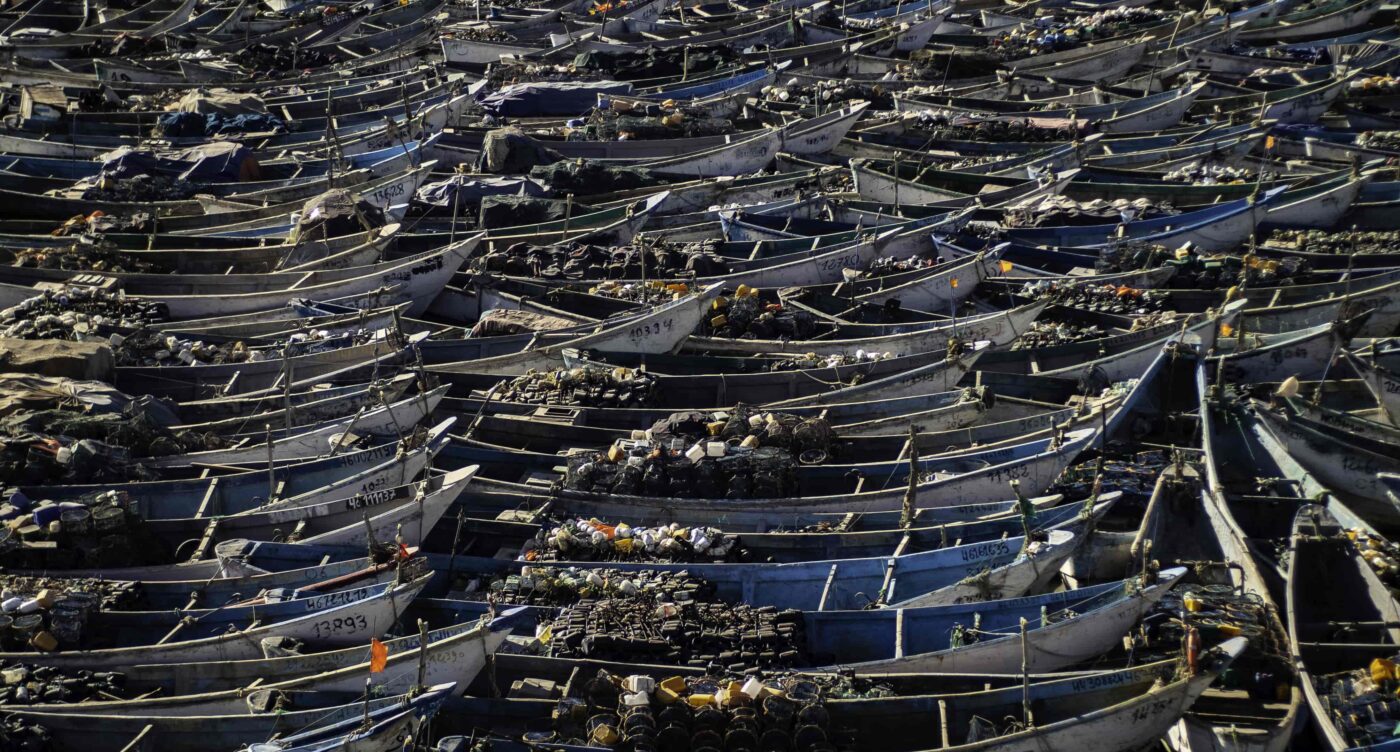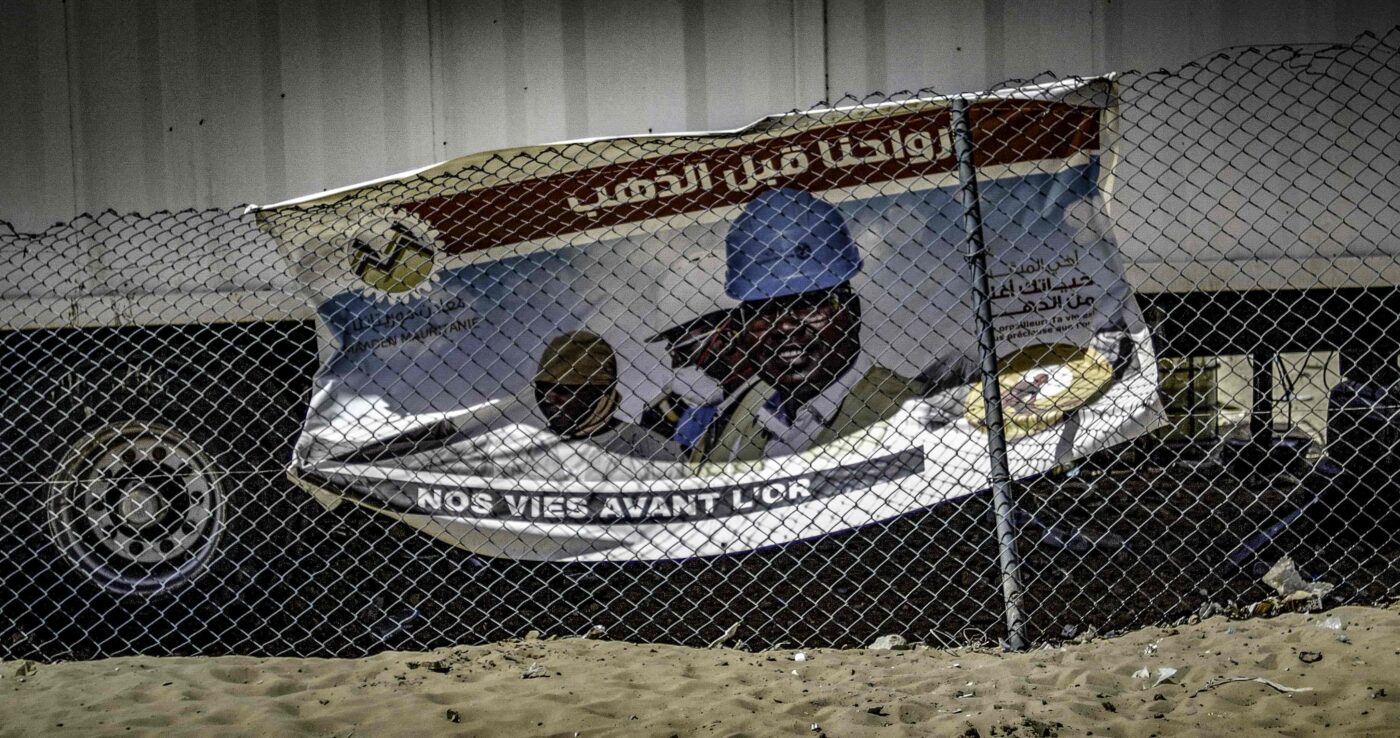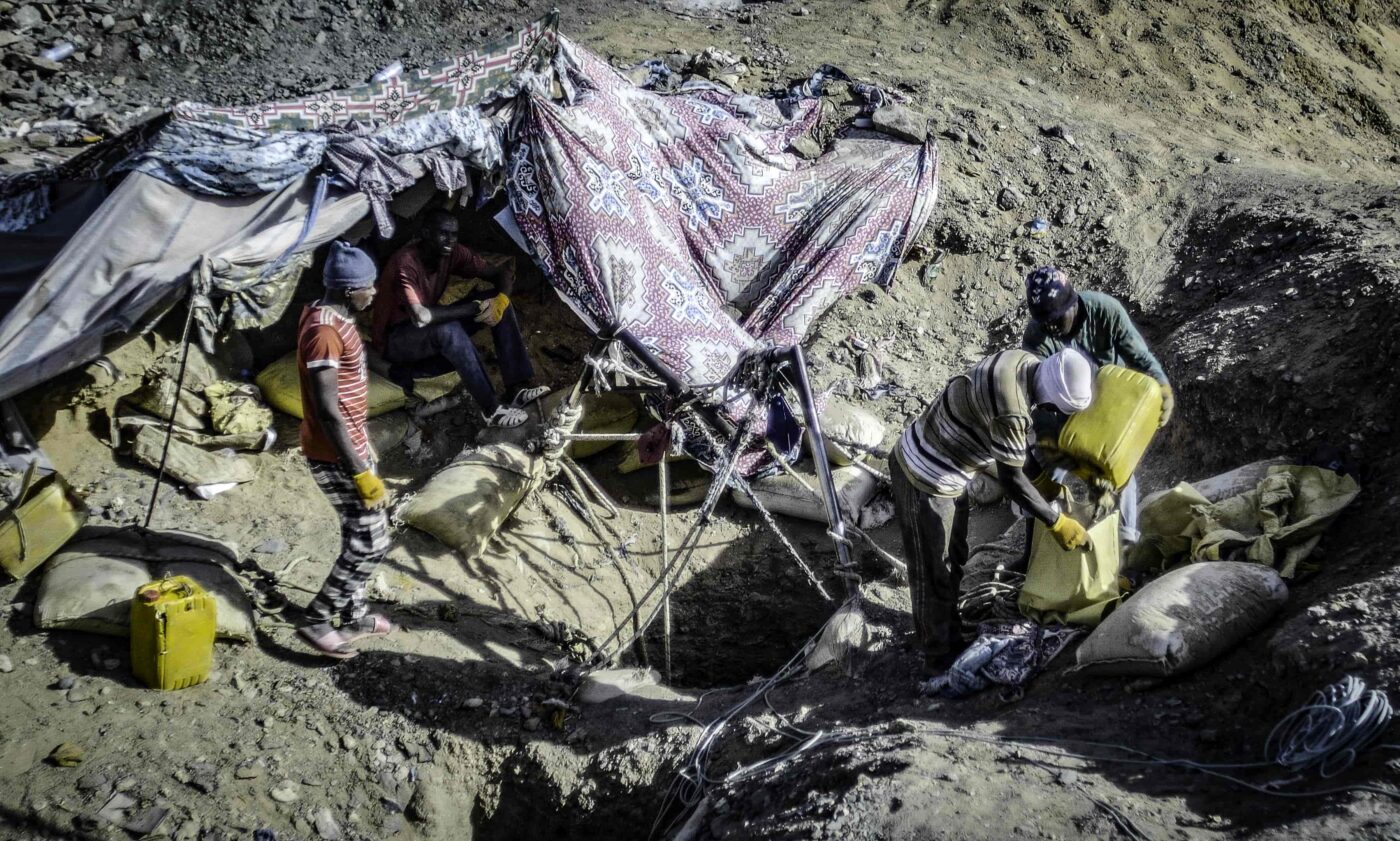Nodes 11 / 12 / 13 / 14 - Caravan
Ended
February - March 2024
Countries: Mauritania, Morocco and the Canary Islands
Nodes: Nouakchott, Chami, Nouadhibou, Dakhla
Migrations, Solidarities and Routes (Un)Making in the Atlantic Sahara
This ethnographic caravan explores solidarity and routes (un)making) in the Atlantic Sahara, devoting special attention to gold and fishing industries and their relevance in transforming and enacting mobilities in a wide area including Senegambia, Mauritania, Morocco, and the Canary Islands.
The 26-day Ethnographic Caravan addressed with varying intensity and depth the following spaces of mobility and settlement between Mauritania, Morocco and the Canary Islands: 1) Nouakchott; 2) Chami; 3) Nouadhibou; 4) Dakhla; 5) Gran Canaria. At the same time, the stories collected and the situations encountered evoke more extensive circulations, not exclusively oriented towards the European Union; on the contrary, they include Senegal, Mali, Côte d’Ivoire, Algeria and Niger. In this perspective, this Caravan has had the function of opening up a research device that we intend to broaden and develop in future editions, holding together this double dimension and researching its points of intersection and overlapping: on the one hand, mobility towards the European Union, and on the other, inter-African mobility linked to work and to finding the resources necessary
Two industries seemed to us to be central in the region to the organization of migration routes and to continue what most people on the move designate by the term adventure. The first is small-scale and industrial fishing, an industry that is both globalised and relies heavily on foreign labour. The second is the gold industry, which also has a small-scale and industrial component. In both cases, the labour market is a relevant ethnographic entry point for grasping the fundamental components of the migration routes we are interested in. The present report tries to answer to the following questions: what migratory imaginaries and migratory practices are involved in the day-to-day making of the route? In what way do these spaces contribute to the construction of relationships within which tactical cooperation is played out and thwarted, enabling the journey to continue? How do these relational spaces enable us to rethink the construction of solidarity on African migration routes?
Thanks to the involvement of commissioned artists, several cultural objects have been also prepared, which rework – using the format of graphic journalism, photo-reportage and ethnographic documentary – the experience and overall results of the research.
Partners: Artistic and collaborative research in Nouakchott and Nouadhibou have been realized also thanks to Mauritanie Perspective and AMPEF (Association Mauritanien pour l’Education de filles). Filming in Mauritania has been possible thanks to DAR Mauritanie Khadamat
Researchers
C. Cassarini, L. Queirolo Palmas, J. Gonzalez Morandi (film – maker), Andrea Ferraris (illustrator)Related Outputs
Reportage
Slaves of the Gold Mines: The Migrants' Hell in Mauritania
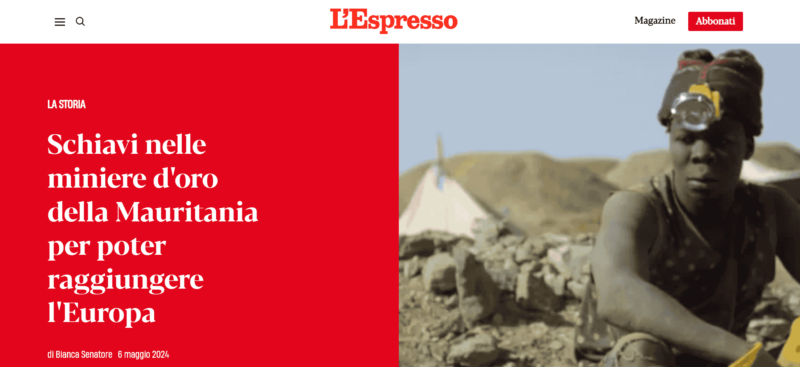
Authors: L. Queirolo Palmas, J. Gonzalez Morandi
Published in: L'Espresso
Newspaper Article
Diaspora and Misery in the Mines of the Sahel
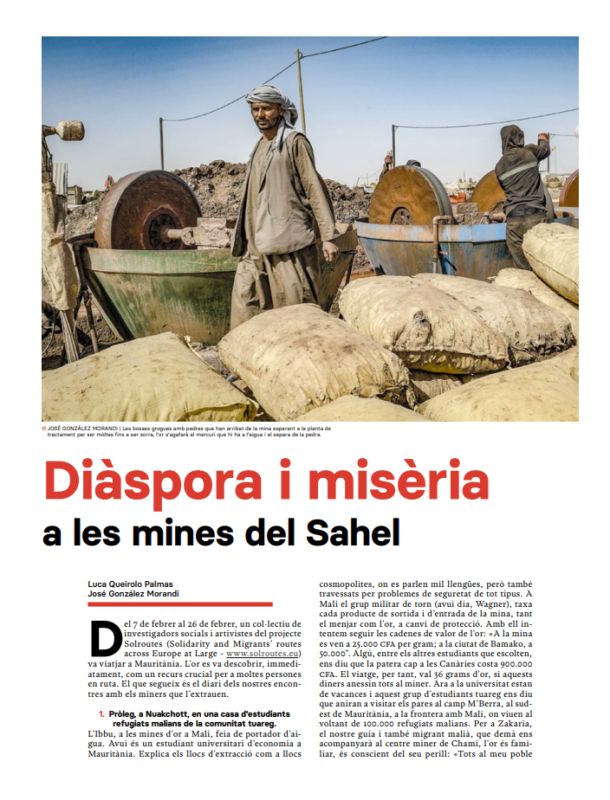
Authors: L. Queirolo Palmas, J. Gonzalez Morandi
Published in: Revista Catalunya
Video
Moctar Dan Yaye, a Voice for the Voiceless: A Conversation on Migration and Human Rights in the Sahara
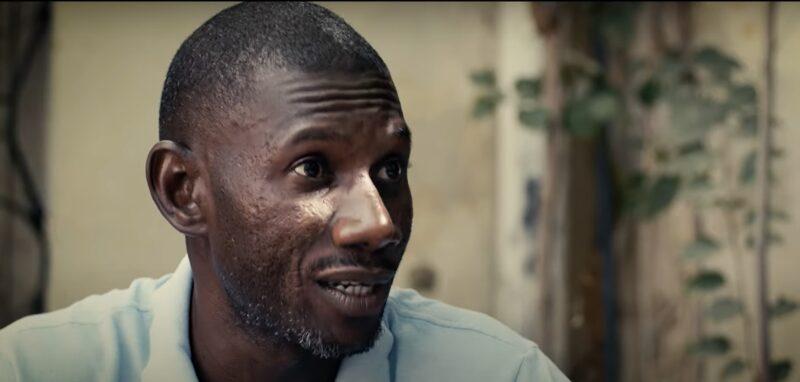
Authors: Luca Queirolo Palmas
